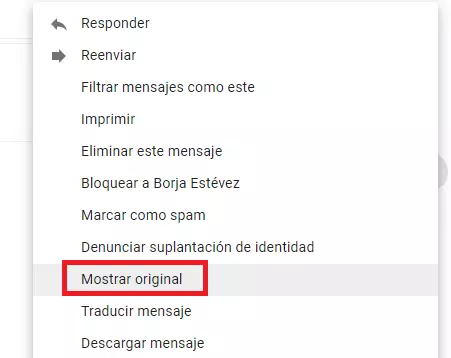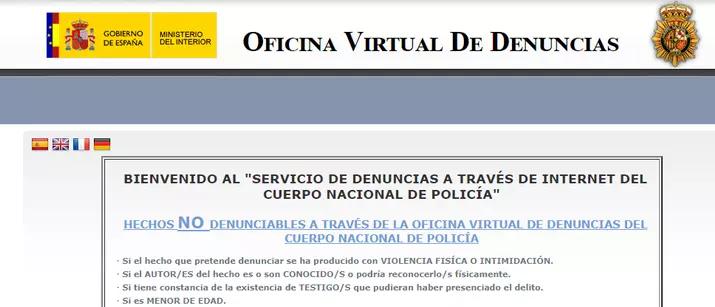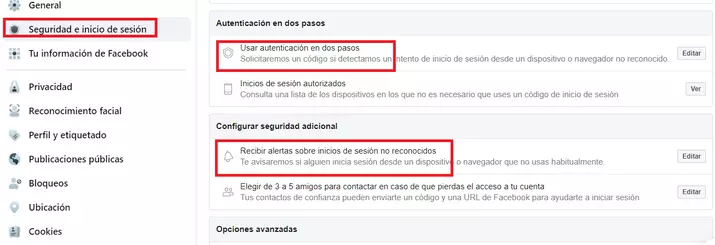Real account or phishing?
Although you may have seen somewhere that it is actually phishing or that your account is going to be stolen, the social network itself confirms that it is a royal domain from which they send their communications. Therefore, yes, it is a real account, your domain belongs to Facebook and it is something that has confirmed the company itself in a communication that you can see on their website.
It is important that you know that any address that appears right next to the domain is trusted, therefore [email protected] is legitimate because it comes to you from the domain of the social network. What is just to the left of the at sign is what the company has configured for any communication, it does not matter if this changes, any name that appears there as long as it reaches you from the same domain is real.
They ensure that they send their email notifications from it, so if you receive a notification sent from another direction other than Facebookmail.com do not open your email or click on the links in it. Not only is it not a fake account, but it is also the official social network to communicate with you.
Recognize Facebook email
If you want to recognize the service email, it is as simple as check real address from which the email arrives and see if it is Facebookmail.com. Also, check that you don’t have any suspicious ads right next to it. For more security, you can click review the original message, see the source of the message or similar information and check if there is something strange there. This is usually found right next to the message, in the options that are seen with 3 points.
If your email service warns you that it could be an attempt to deceive, phishing, spam or the like, it is best to delete the message as soon as possible because it is most likely not the one from Facebook. On the other hand, you can recognize any misleading message easily if it comes from another email than the one indicated, if there are spelling mistakes, the images do not load, the links send you to another page, the appearance is not the same as always or there is something that makes you suspicious.
I get suspicious emails from Facebook
Scammers can create fake emails that seem to come from the services that you use the most, including Facebook. These often look like notifications for friend requests, events, messages, videos, photos, false claims of infringement of community rules, notices that if you do not do something your account will be closed, offers too good to be true and false bargains. In this case, do not open the email. If you think it could be true, when you open it, check where it comes from and if it is not from the account that we have told you, delete the email immediately and do nothing with it.
To do?
The first thing you should do is, as we have told you, that don’t open the mail neither its links nor attachments. You have already verified that it is not a real account, so it is best to do nothing or report it to Facebook. We do not recommend that you reply to the email or fall for provocations or try to deceive cybercriminals because this could have unintended consequences. If you think it is a scam or it can affect many people, you can report it to the police (you can make electronic complaints).
You can also mark it in your email service as unwanted mail so that no new messages can reach you from there. You can do this with all the messages you consider necessary, in addition to blocking them if you see fit.
Report content
You can report all the messages that reach you in: [email protected] or in the report content page correspondent. If you look at the page, on top of everything you will have an inverted triangle of options. If you give it, you can request help and technical support, and from there report a problem.
To contact the social network, it is good that you offer all the information you have about the problem. Inform about the domain they write you about, what they tell you and send relevant screenshots so they can act.
Facebook takes these notices very seriouslyIn fact, it often works to get them to close or stop using domains similar to yours. Sometimes he uses mechanisms such as the WIPO (World Intellectual Property Organization) to stop cybercriminals or other people and companies from using domains with his name.
Phishing on Facebook
One of the most common security problems on the Internet is phishing, in fact, there are more and more attacks of this type to steal our identity and do what they want with our account, deceive our friends, use our data or whatever they want. We will tell you what it consists of, how to recover your account if you have lost it and how you can protect yourself from it.
What is it
Phishing or identity fraud it is an increasingly frequent problem on the Internet and on social networks. Happens when someone send you a message or link in which they ask for your personal information to access your social network account. If you give him permission to do it or give him the data, thinking that it is Facebook, he can use your account to send spam or do whatever he wants with it.
If you put your username in password by mistake in some strange link or you think that someone may have obtained your data, try to log in and from there close the session on any device that is not yours. Change your password immediately before doing so. If you can’t log in, find out how to recover your account. Follow the page instructions, it is recommended that you do it from a computer or mobile from which you have logged in before. Find the account you want to recover and follow the steps to reset your password.
How to protect myself
Like any other deception on the internet, the first thing you have to do when faced with a suspicious email or message is to have a cool head and wait before making a decision, especially in those that create a feeling of urgency or rush. Don’t trust messages that they offer you gifts, bargains, ask for money or threaten to lose your account or ban it for any reason.
Don’t reply to messages that ask for your card information, account number, password, social security number or important data. Facebook will not ask you for this information, much less by email.
The emails of your account will always come from fb.com, facebook.com or facebookmail.com. If not, don’t open them. Remember to see this address in the recipient and not in the subject of the message. Do not open suspicious files or links or access any link from your email. Don’t download files, it doesn’t matter if you think the email is legitimate. Remember that if you have been sent a important message, you do not have to access from the email itself. Go directly to your Facebook account by typing Facebook.com in your browser and see if you have something to do.
We recommend that you access Security and login on your account and check if there is any security confirmation Important, look at where you signed in from (if you see something that doesn’t usually remove it) and turn on two-step authentication to improve your security.
You can also, below, to configure additional security, request to receive login alerts unrecognized and choose friends so they can contact them if you lose access to your account. Adjust the security settings according to your needs and preferences to protect your account against intruders, and don’t forget to change your password frequently, always with a new one that is more secure and that no one can guess.

Introvert. Beer guru. Communicator. Travel fanatic. Web advocate. Certified alcohol geek. Tv buff. Subtly charming internet aficionado.




